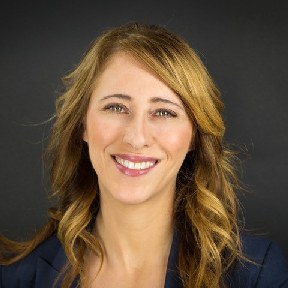Informal, unpaid family caregivers and care partners are increasingly the backbone of participatory medicine. My father was a physician, but when he was seriously ill, it was really on my mom and me to advocate for him, understand the constellation of conditions, understand his medications — and even push back on physicians who were long-time family friends.
Despite working in patient education and engagement, it took me a while to recognize that I was also a family caregiver. And we increasingly worried about my mom’s health and well being as caregiving went on for many years. I also noticed I wasn’t doing so well myself – I thought about quitting my job to help my mom — and also worried about being fired due to my caregiving absences. This is not news to most of you. But my mom is a former nurse, and lives to caregive. So, if this is what it was like for us, what does that mean for everyone else? It becomes a dragnet that takes everyone down.
Researchers have started to take a closer look at what it means as more and more people are both working and taking care of an ill, injured, or disabled family member or friend. The Harvard Future of Work team, the Rosalynn Carter Institute, and others have released reports looking at the experience of employees who are family caregivers.
In addition to the variation in caregiving itself, there are shift workers, knowledge workers, people who travel — and they all create different challenges for working and caregiving. So the nonprofit I co-founded, the Difference Collaborative Alliance decided to see what we’d learn when we surveyed a specific type of worker who is also a family caregiver. Given our team’s shared background in healthcare, we decided to ask what it’s like for nurses to be professional caregivers at work and informal family caregivers at home. After all, they’re already professional caregivers. And they work for healthcare organizations that should understand the challenges and realities of personal / informal family caregiving, right?
In addition to my mom, my mother-in-law and two of my cousins are also nurses. And when anyone in the family is ill, needs surgery or long-term care, they’re the first ones everyone turns to. My mom is 89 and everyone in her retirement community still comes to her for help with bandages and medications. At one point, one of my cousins was caring for an elderly father, an ill partner, and a disabled sibling. Yes, they’re professional caregivers — but they also get no break from caregiving — doing it both professionally and personally. Plus, caring for for a family member always comes with additional challenges.
The Difference Collaborative Alliance decided to survey two groups: 1) nurses who are double-duty family caregivers, and 2) nurse managers, nurse leaders, and hospital leaders to see how their perception of informal family caregiving affects nurses, teams, and patient care.
SPM was kind enough to create a landing page for this study on their website. This was essential, because as a nascent group that didn’t yet have a website and was pending approval for our non-profit — the landing page created a place study participants could go and see that this was a trusted group. It made a big difference in nurses and others feeling comfortable participating: a halo effect.
We followed this research up with a summit which included Chief Nursing Officers and their teams, researchers from Johns Hopkins, Harvard, and Purdue, and good friends with patient/staff experience like Richard Corder. Next steps are to pilot a simple nurse/caregiver initiative at a couple of midwestern hospitals – currently on hold due to the pandemic.
The researchers also collaborated with us to analyze and publish this research, currently available in Nursing Outlook! The full text is freely available online until March 15, so please read and share it while it’s easy to access: https://authors.elsevier.com/a/1eTsq6lYmrQEX
Please let us know if you have questions — there is so much more we couldn’t include in this short post.
If you’re interested in reading the nurse/caregiver summit materials, viewing or listening to videos and podcasts, and seeing what the Difference Collaborative and their research partners have done about Family Caregiving & Working (like SPM’s Danny van Leeuwen’s Health Hats podcast and the Health Design Podcast) go to: https://differencecollaborative.com/dc-events.
Geri Lynn Baumblatt, MA is a lifetime member of the Society for Participatory Medicine and hosts regular meetups in Chicago. She is the co-founder of Difference Collaborative and Difference Collaborative Alliance, which work to support family caregivers. She is also the Chief Engagement Officer at Docola, a social good health tech company with a free patient education/communication platform. She serves on the Patient Experience Policy Forum, the American Telemedicine Association ORCHA team, the DiME Societies IMPACT panel, and was recently appointed to PCORI’s Patient Engagement Advisory Panel. She writes a column on Healthcare IT Today: @GeriLynn | @DiffCollab | @docolainc
Did you enjoy this post? Learn more about becoming a member of the Society: https://participatorymedicine.org/.







Geri, Well written, well research and well done, as usual and an interesting read. Keep going!